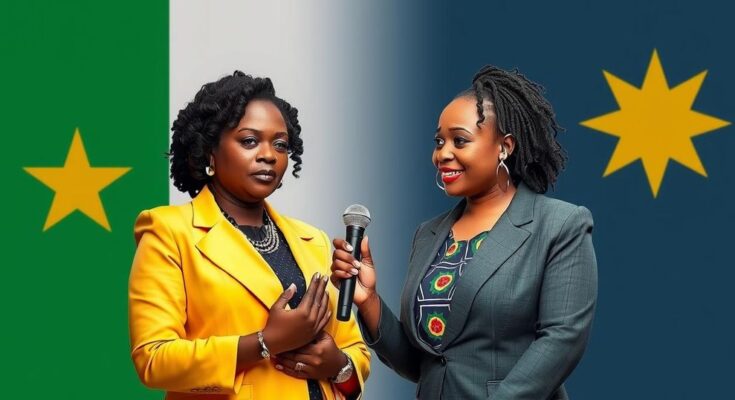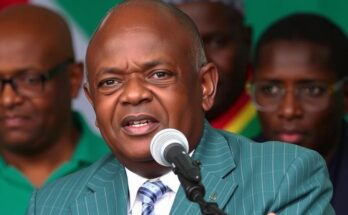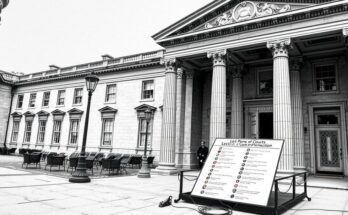Namibia may elect its first female president, Vice President Netumbo Nandi-Ndaitwah, in the upcoming elections on November 27, 2024. She aims to address high youth unemployment and advocate for women’s rights. The election presents challenges for the ruling SWAPO party following recent corruption scandals and loss of majority power. Competing parties are also emerging, potentially altering the electoral landscape.
Namibia stands on the brink of potentially electing its first female president, with Vice President Netumbo Nandi-Ndaitwah leading the race ahead of the national elections scheduled for November 27, 2024. Approximately 1.4 million Namibians, representing about half of the electorate, are poised to cast their votes for Nandi-Ndaitwah, who is affiliated with the ruling South West Africa People’s Organization (SWAPO). The party has faced challenges since losing its two-thirds majority in 2019, with public discontent arising from corruption allegations within the government. Despite these issues, Nandi-Ndaitwah’s campaign emphasizes job creation and tackling high youth unemployment rates.
A significant portion of the electorate, particularly younger voters, is crucial for Nandi-Ndaitwah’s success. Political analysts suggest that the government’s historical credentials as a liberation movement are less compelling to the new generation, who prioritize effectiveness and good governance. In response to current socio-economic issues, Nandi-Ndaitwah has promised substantial investments aimed at job creation, although critics question the feasibility of her ambitious goals. Women’s rights issues are also expected to be prioritized during her campaign.
If elected, Nandi-Ndaitwah would follow in the footsteps of other notable female African leaders, marking a pivotal moment in Namibia’s political landscape. Political analyst Erika Thomas emphasizes the need for Nandi-Ndaitwah to remain independent and advocate for increased female political participation. As the elections approach, SWAPO is also facing formidable competition from emerging parties, including the Independent Patriots for Change and the Affirmative Repositioning party, adding further tension to the electoral environment.
The upcoming elections in Namibia are set against a backdrop of political transformation, having profound implications for the country’s leadership and governance. SWAPO has been the ruling party since Namibia’s independence in 1990, but their recent political struggles, particularly the loss of a two-thirds majority in 2019, reflect growing public dissatisfaction driven largely by corruption scandals. As half of the population is registered to vote, the focus now shifts to the candidates’ ability to resonate with the electorate, particularly younger voters who may prioritize performance over historical ties. Netumbo Nandi-Ndaitwah, at 72 years of age, has positioned herself as a candidate committed to addressing pressing economic concerns, including a staggering 20% youth unemployment rate. Her campaign has begun to emphasize women’s issues, potentially galvanizing female voters. With notable shifts in the political arenas of other Southern African nations, the dynamics of the Namibian elections could be indicative of broader regional trends, with significant changes at stake in the political landscape.
In conclusion, Namibia’s upcoming elections are significant as they present an opportunity for historical change, potentially resulting in the election of the country’s first female president, Netumbo Nandi-Ndaitwah. Her campaign addresses critical issues such as youth unemployment and women’s rights, reflecting the electorate’s demands. The ability of SWAPO to retain power amid rising competition will hinge on its connection with younger voters and the public’s reaction to past corruption scandals. The outcome of these elections could not only reshape Namibia’s political future but also influence regional political dynamics.
Original Source: apnews.com




